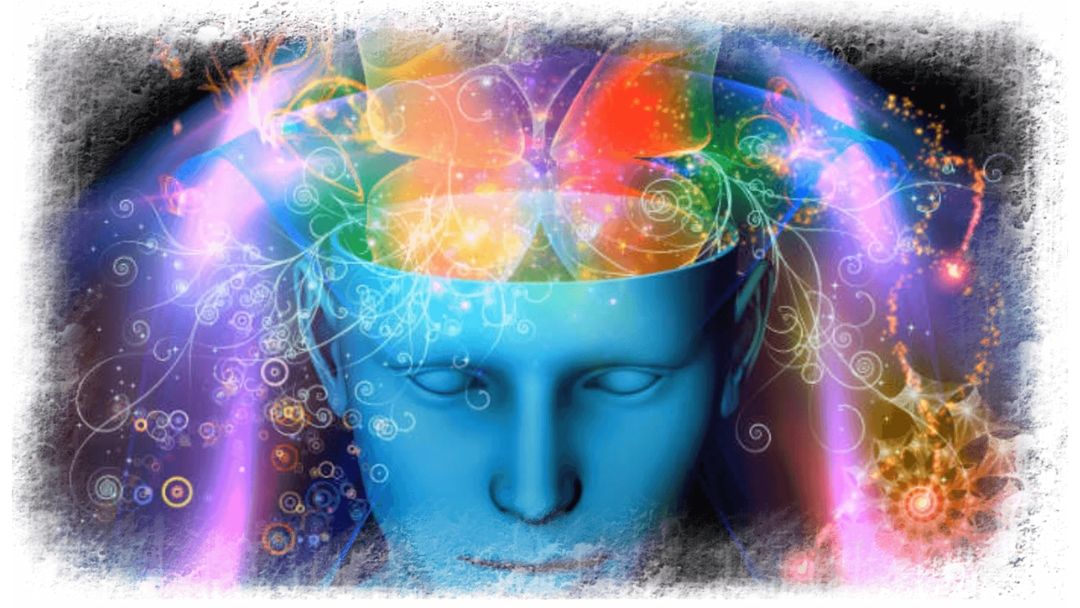
by Susy Shikoda | Jul 2, 2024 | Uncategorized |

DE-INFLAME is a process that involves both physical and mental approaches to reducing inflammation in the body and promoting emotional well-being. I often say that the “MAP” system – Movement, Food and Thought – created by neurologist Professor Pedro Schestatsky is the path to perfect integration.
Emotions and feelings can affect our body in an overwhelming way, and can also be influenced by the environment we live in, the people we live with and the daily inter- and intra-personal challenges.
On the other hand, inflammation can also be generated physiologically due to unhealthy daily habits that trigger processes that directly affect our emotions. For example:
Have you ever had an upset stomach or nausea after arguing with someone? Or felt your blood pressure rise or fall after some unpleasant news?
Our emotions are like a sensor, directly affecting our mind and therefore our body.
Feelings such as hurt, resentment, anger, sadness also create long-term somatisation and can lead to various types of illness such as gastritis, ulcers, cardiovascular problems, allergies, respiratory problems and even cancer.
And from my own experience, cultivating so many feelings like hurt and resentment towards my father over many years, and even having a healthy lifestyle, I didn’t escape the most painful diagnosis of my entire life: “level 3 breast cancer”.
It’s important to remember that each person is unique, and that not everyone who has these feelings and emotions will get the disease, but that the likelihood of them leaking into the body, weakening our defenses and preventing it from regenerating itself is undoubtedly very high.
That’s why I decided to study in depth the relationship between feelings and emotions and neuro inflammation, specialising in Neuroscience and Mental Health and Emotional Intelligence.
And in the face of so many discoveries that made my eyes shine, such as anti-inflammatory diets, alternative types of physical activity, which sometimes just 15 minutes a day can have a very beneficial effect on the body; understanding how to have a restorative night’s sleep because it’s positive the next day, being aware of moments of stress; using emotional intelligence to create a healthy social environment and cultivate good relationships (family, friends, love); having a full and pleasurable sex life… after all, sex is life! Also be open to integrative therapies; hydrate your body with water! That’s right, no substituting tea or juices; And finally, supplements and nutrients (which I’ll be talking about in detail in future posts).
The combination of these approaches can help reduce inflammation in the body and promote better emotional health. What works for some may not work for others, but by following a healthy lifestyle, cooperating with your body functions properly, and recognising your emotions, I believe it is possible to DE-INFLAME not only the body but also the emotions.
Here’s one of my favorite recipes that I created myself to DE-INFLAME the body and the emotions. It’s very simple to make and has a high nutritional and antioxidant power. Taking it in the morning on an empty stomach will help your body neutralize inflammation, increasing your immunity, improving digestion, intestinal flora with fungicidal properties, and the warm water with lime will help the immune system by hydrating and replenishing the fluids lost by the body during the night’s sleep.
And you will already connecting with the day that’s starting, drinking the tea in a present and full way, practicing mindfulness with this wonderful combination of ingredients that for me is pure alchemy of the senses!
And in this moment you already connect with your mind, body and energy, balancing your emotions.
I savoured every ingredient of this tea, which my friends called the tea of love, because it takes care of the body and soul in such a beautiful way.
Here’s what you’ll need…
1 piece of grated ginger
Turmeric with Bioperine 10mg
½ teaspoon cinnamon powder
1 teaspoon of coconut oil or MCT oil
½ squeezed lime
Warm water
Its benefits really are incredible, and if you want to know more about other magical potions, follow me on https://www.instagram.com/susyshikodaem , because if I write everything here it will become an Ebook… haha
I’m very grateful to everyone who has made it to the end of this reading and happy to be able to share what I’ve learned and learning along this endless journey called “LIFE”.
Love and Lights
Susy

by Susy Shikoda | Dec 1, 2020 | Uncategorized |
The health of the mind reflects the health of emotions.
Balance is an essential factor for us to have a full life, our mind in coherence with our heart, our body with our brain, and especially our mental health in line with our emotional health.
Knowing how to take care of them is what can make life happier and be resilient in the face of life’s challenges.
When the health of our mind is compromised, it ends up affecting our emotions and consequently reflecting on our body most of the illnesses we know today, from digestive problems such as ulcers, gastritis and even problems affecting the nervous system such as depression, migraine, irritability which in the past were ignored because they thought they were only related to emotions.
What are the most common problems when the health of the mind is not going well?
Emotional imbalance. The tendency to constant negative thoughts, more pessimistic than optimistic. Lack of control and expression of feelings, sometimes sad and depressed, or too much anger, irritability, and impatience.
Social isolation, loss of willingness, or interest in interacting with friends, family, people in general. This loss of interest in the activities one used to enjoy can be a warning sign, this isolation represents a departure from past behavior, and these can be related to depression, bipolar disorder, schizophrenia, anxiety among others.
Insomnia, mood changes, lack of concentration and focus, start several activities, but has difficulty to complete, and deal with day-to-day situations, easily losing motivation.
Fatigue or lack of animation to perform even simpler activities.
Change in relationships with the people around us, with friends, partners, family.
Self-esteem, not feeling good enough for any situation in life.
Self-care, losing interest in oneself.
Depression, post-traumatic stress, Burnout syndrome, bipolarity the so-called “World Epidemics”.
Constant oscillation in mood and behavior between happy and sad, agitated and apathetic as well as easily losing enthusiasm, these ups and downs can affect your well-being and with time it can become so common that you don’t even realize how much you are committed.
Excessive compensation, such as eating too much or not eating at all, buying things without necessity as a way of giving oneself up in the face of difficulties.
Indiscriminate use of drugs, alcohol, and cigarettes
Excessive concern for the future or for something that may not even happen.
What are the benefits of a healthy mind?
The benefits are unlimited, it will provide a connection with the body and its vital energy until the manifestation of its purposes and objectives.
Health and disease prevention in the physical and energetic body.
Improves concentration, attention for, and more self-knowledge to recognize behaviors and emotions. Professional
Develops self-esteem and self-development capacity, making you see your qualities that make you a unique human being and helping to identify the origin of your insecurities and imbalances.
Broadens your ability to relate, expressing your true personality, and thus deepening your family, marital, and friend relationships.
Stimulates and renews your intellectual abilities to carry out your daily tasks more effectively.
What is the solution?
Do exercises. Movement generates positive physiological reactions, with the production of neurotransmitters. Endorphins and serotonin are released in the blood and cause well-being, optimism, and disposition. That’s why health organizations recommend exercise as the main ally of diseases such as depression and sedentarism (which leads to potentially lethal diseases such as obesity and diabetes).
Meditate. This technique has the power to modulate brain activity and change patterns. Daily practice improves concentration, full attention, and more self-knowledge to recognize and give you with emotions and behaviors.
Cultivate self-esteem. Open your eyes to see the qualities that make you a unique human being.
Put into action the self-care dedicating at least one hour of your day to do something that gives you joy and pleasure, like running, practicing yoga, reading, learning something new to stimulate brain connections and extra energy to face the challenges of everyday life.
Being always surrounded by loved ones that we consider and love as family friends do a lot of good for the soul! A good conversation can serve as therapy, either to vent, to give good laughs.
Therapy is a way to go deep into the emotions and solve internal conflicts, and to make the most of your talents.
“Self-knowledge is what we have best in our hands to develop what is inside of us, if we give ourselves the opportunity to explore these abilities you will see how many sunsets you are able to see in just one day”.
Susy Shikoda


by Susy Shikoda | Feb 7, 2020 | Brain Training, Mindset, Uncategorized |
Have you ever missed an opportunity because your mind has been dominated by fear?
Fear is a very common obstacle in the human mind. It used to keep us alive in cave times. When large animals and predators roamed our territory, a keen conscience saved lives.
Nowadays, we are quite safe, as we don’t have to fight to survive.
But inside your brain, it has the same fear circuit that your cave ancestors had.
Just instead of taking action when a tiger is near, the fear circuit responds to modern terrors like talking on stage in front of hundreds of people, tall buildings, rejection, or failing a test.
The trigger is different, but the response to fear is the same.
Fortunately, you are the boss – not your brain.
Fortunately, you are in charge, not your brain.
Unfortunately, sometimes your brain takes over and it can be very difficult to get past it …
So, if you feel that fear has taken over your thoughts and emotions, slow down, and exercise! Continue reading during two parts of the physical exercise that will help you calm your hyperactive fear circuit, and then overcome your fear!
PART 1: CALM YOUR CIRCUITS
When your fear circuit is firing excitedly, it is difficult to focus on anything else. That is why part 1 is a simple breathing exercise to calm the circuit.
Follow these steps and you will be ready to consciously overcome your fears in no time.
When you start to feel anxiety or fear, just stop what you are doing and watch the emotion – don’t fight it.
PART 2: BREATHE
Take 6 long, slow and very deep breaths. Feel the stress leaving your body. Imagine that you are inhaling calmly, and exhaling small molecules of fear.
Six breaths is a kind of magic number to calm down when you are in an excited state. If you’re still nervous, keep breathing!
After calming down, smile! You just took the fear away like a light switch. With practice, you will become a master at turning off negative emotions (when they are not serving you).

by Susy Shikoda | Aug 11, 2019 | Mindset, Neuroscience, Uncategorized |
To fully enjoy our mind, first of all it is vitally important to understand how it works, as well as a computer that before downloading any program you need to know the basic functions of the device.
And the brain in turn is the perfect machine that we use to program our mind.
Have you ever heard that the brain is like a muscle? This is an analogy but studies show when exercise can increase the amount of neurons and brain activity, both by intellectual stimulation and regular physical activities, hence the need to keep your body, mind and energy aligned.
What the brain and the muscle have in common is what we call Plasticity, which are divided into 5 modalities, but the one I will refer to here is that related to learning.
Every time you learn something new the brain keeps the important information, to be used when necessary, and so it creates a path in your brain that each time you learn more with that same experience or knowledge, these paths get stronger and stronger . Studies have shown that when a person who already speaks more than one language when he starts to study other different languages is much easier to learn, this is because the brain created a communication between neurons that made this experience stronger and more efficient.
Follow my tips below and increase your brain capacity:
- Be constantly learning to strengthen brain connections.
- Get out of the routine, try to do the same in a different way, eg: brush your teeth with the hand contrary to the one you are used to brushing.
- Focus on a particular activity from beginning to end, without distractions so that you can learn more regularly.
The brain is constantly evolving and changing, adapting to the culture and environment where you are, and this capacity we call Neuroplasticity or Neural Plasticity, where they are able to change, adapt, increase in size and even repair damage suffered, transforming and creating other connections through neurons.
Follow my tips below and increase and stimulate your Neuroplasticity:
- Exercise both sides of your brain, using the right side using your creativity and the left side for logical reasoning, diversifying your learning by covering areas of knowledge thus stimulating both hemispheres.
- Having a balanced diet is crucial for your brain to function at full throttle, eliminate negative habits that are the automatic neural pathways for your brain, replacing with healthy habits for at least 21 days.
- Resting and relaxing your brain is also necessary for it to recover and perform well. A good night’s sleep and meditation are great for recharging your batteries!
This topic is quite complex, but what was discussed here will be enough for you to sharpen your interest in the subject and start consciously to develop Neuroplasticity in your brain, increasing your knowledge and opening new frontiers never imagined, in this universe called BRAIN .
Good journey, and good discoveries!
Susy Shikoda





